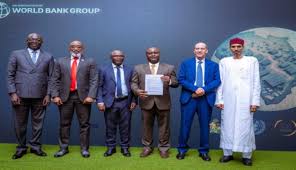At a high-level ministerial workshop hosted by the Government of Sierra Leone on Friday in Freetown under the auspices of the World Bank Group and Sustainable Energy for All (SEforALL), Ministers of Energy and Finance from the Central African Republic, Chad, Liberia, Mauritania, Republic of Congo, and Sierra Leone endorsed the Freetown Declaration on Regional Collaboration for Scaling Distributed Renewable Energy in West and Central Africa.
The Ministers pledged to leverage financial and technical support from the World Bank Group and SEforALL to establish and expand a collaborative platform aimed at scaling distributed renewable energy solutions across West and Central Africa. This initiative focuses on ending energy poverty and fostering job creation.
The signed declaration recognizes the crucial role of distributed renewable energy solutions in efficiently and cost-effectively expanding energy access. It also emphasizes the importance of private sector involvement in scaling up energy access initiatives in the West African region.
Reflecting on the declaration, Hon. Kandeh Yumkella, Chairman of the Presidential Initiative on Climate Change, Renewable Energy and Food Security, Sierra Leone, said:
Distributed renewable energy sources, such as mini grids offer a fast, flexible, and cost-effective way to provide energy access to underserved communities. Given the high geographical concentration of the West and Central African electricity access gap, donors and development finance institutions need to come together and maximize impact by broadening and deepening access agendas at regional and national levels. This is exactly what the declaration that has been endorsed today proposes, and I look forward to seeing this working in Sierra Leone and across West Africa.”
Robert R. Taliercio, World Banks Country Director for Ghana, Liberia, and Sierra Leone, said:
Given the fragility-related risks and small market sizes of many West and Central African countries, several leading international distributed renewable energy firms have refrained from operating in these countries so far. The World Banks experience and its approach of aggregating capacity needs across multiple countries demonstrate that regional aggregation can provide a large enough demand to create greater economies of scale and attract leading international private players to provide the infrastructure to smaller and more fragile countries at lower cost. I look forward to working with in-country and regional partners to bring this declaration to life.










